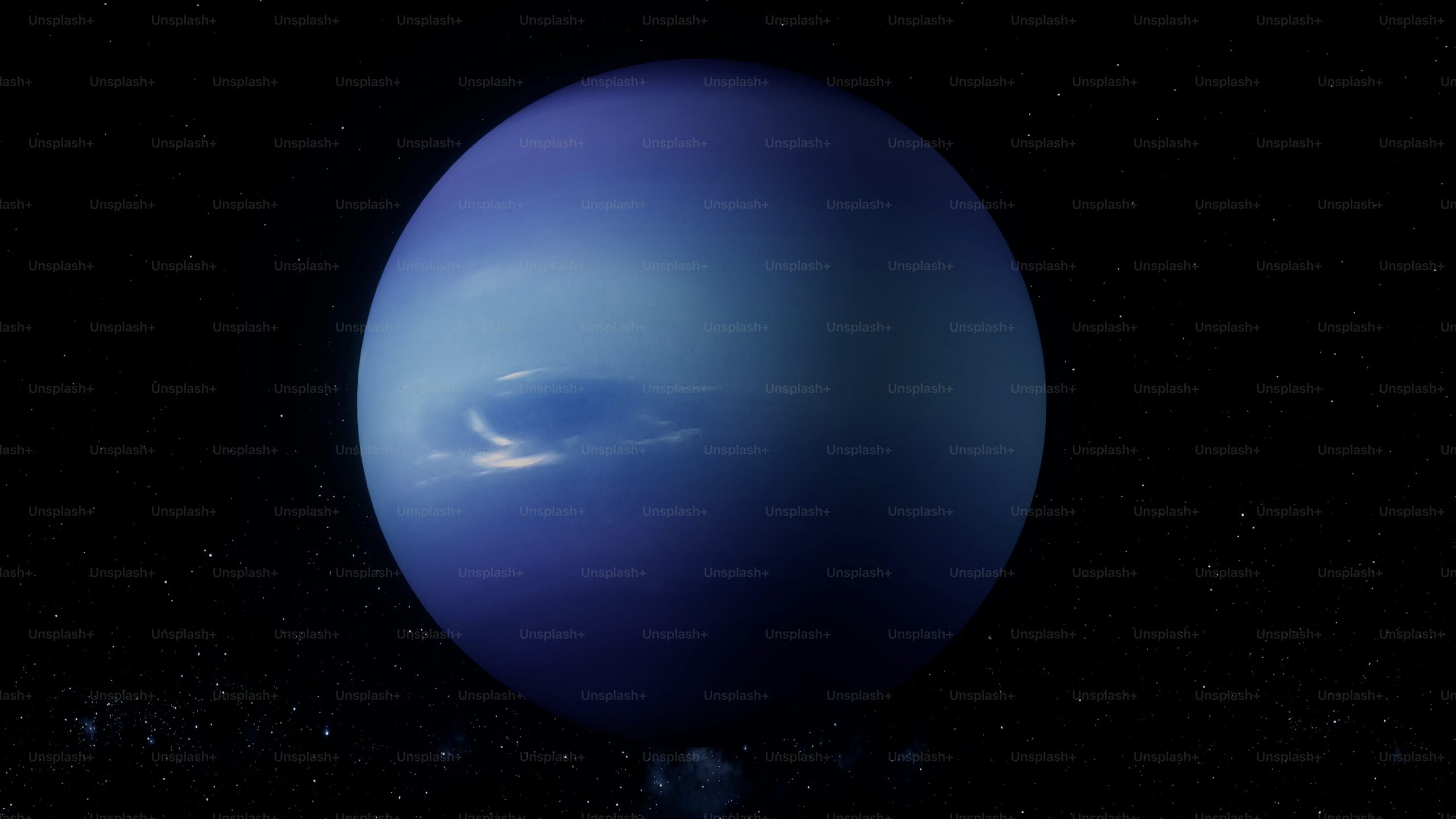Neptune, the eighth and farthest planet from the Sun, is an icy giant with a deep blue color. It is known for its extreme cold temperatures, its strong winds, and its Great Dark Spot, a massive storm system similar to Jupiter’s Great Red Spot.
Physical Characteristics
- Size: Neptune is slightly smaller than Uranus and has a mass about 17 times that of Earth.
- Composition: Neptune is primarily composed of hydrogen and helium, with smaller amounts of methane, ammonia, and water vapor. The methane in Neptune’s atmosphere absorbs red light, giving the planet its blue color.
- Great Dark Spot: This massive storm system is similar to Jupiter’s Great Red Spot. It is a swirling vortex of clouds that is estimated to be several times the size of Earth.
- Magnetic Field: Neptune has a strong magnetic field, which is generated by the planet’s rotation and its internal structure.
Moons of Neptune
Neptune has 16 known moons, many of which are named after sea gods and goddesses from Greek and Roman mythology. Some of the most interesting moons of Neptune include:
- Triton: Triton is the largest moon of Neptune and is one of the coldest places in the solar system. It has a frozen surface covered in ice and nitrogen. Triton is also known for its geysers, which erupt water vapor and ice particles into space.
- Nereid: Nereid is a small moon with an extremely eccentric orbit. It is one of the most distant moons in the solar system.
- Proteus: Proteus is a small, irregularly shaped moon with a heavily cratered surface.
Exploration of Neptune
Neptune has been visited by only one spacecraft, the Voyager 2 mission, which flew by the planet in 1989. Voyager 2 provided valuable observations of Neptune’s rings, moons, and magnetic field.
Future missions to Neptune may focus on exploring Triton in more detail, searching for signs of life and studying the planet’s geysers. Scientists are also interested in studying Neptune’s atmosphere and magnetic field.
Neptune is a fascinating planet with a unique history and a bright future. As we continue to explore this distant world, we may gain new insights into the formation of our solar system and the potential for life beyond Earth.
